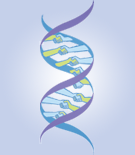User:Joseph T. Meyerowitz: Difference between revisions
mNo edit summary |
No edit summary |
||
| Line 8: | Line 8: | ||
For more information, feel free to check out [http://joemeyerowitz.com my website] or [[Special:Emailuser/Joseph T. Meyerowitz|email me through OpenWetWare]] | For more information, feel free to check out [http://joemeyerowitz.com my website] or [[Special:Emailuser/Joseph T. Meyerowitz|email me through OpenWetWare]] | ||
==Fun Facts== | |||
The earliest historical mention of "synthetic biology" I can find is [http://books.google.com/books?id=dd0cAQAAIAAJ&dq=%22synthetic%20biology%22&pg=PR4#v=onepage&q=%22synthetic%20biology%22&f=false from 1864] - [http://ngrams.googlelabs.com/graph?content=synthetic+biology&year_start=1800&year_end=2008&corpus=0&smoothing=3 a phrase especially popular between 1913 and 1920]: | |||
{{Quote Box | |||
|quote=…Although obliged to coin a few new terms, we deem natural distinctions and definitions of more importance than mere names; for many questions of positive science must be settled before any general system of nomenclature can finally be admitted.<br><br>The same "artist" misrepresents our definition of systematic biology in contrast with unsystematic biology. "Why are we to assume a less amount of system or method to reside in the analytical than in the synthetical form of biological study, or in what way a perfect synthesis of our knowledge upon the facts of life is to be built up, in the absence of a concomitant and event antecedent analysis, we want something more than arbitrary assertion to make intelligible to us." The reviewer, in haste, has not observed that we mention seven kinds of anatomy and physiology as necessary branches of antecedent analysis, and give our own concomitant analysis of the human body as a necessary basis for synthetic biology... | |||
|source=Hugh Doherty<br>Preface to Organic Philosophy; or, Man's True Place in Nature, Vol. I - Epicosmology | |||
}} | |||
Excellent evidence that if you search hard enough in the literature you can find almost anything, and that peer review was not always appreciated even a century and a half ago. | |||
Revision as of 21:15, 17 December 2010
Who

I'm Joe, a student with the Biochemistry and Molecular Biophysics Option at Caltech. I work with Frances Arnold, Richard Murray, and their respective labs on metabolic engineering, biological circuit design, and other endeavors that might be loosely described as "synthetic biology". I recently graduated from Duke University with a dual degree in Physics and Electrical and Computer Engineering. My graduate studies are supported through an NDSEG fellowship and an NSF fellowship.
What
I'm working on a number of projects including biofuel synthesis, engineering robust synthetic biocircuits, and engineering novel stress responses in microbes. I'm also one of the ringleaders for the Caltech Synthetic Biology Journal Club and a graduate advisor for the Caltech iGEM team.
For more information, feel free to check out my website or email me through OpenWetWare
Fun Facts
The earliest historical mention of "synthetic biology" I can find is from 1864 - a phrase especially popular between 1913 and 1920:
…Although obliged to coin a few new terms, we deem natural distinctions and definitions of more importance than mere names; for many questions of positive science must be settled before any general system of nomenclature can finally be admitted.
The same "artist" misrepresents our definition of systematic biology in contrast with unsystematic biology. "Why are we to assume a less amount of system or method to reside in the analytical than in the synthetical form of biological study, or in what way a perfect synthesis of our knowledge upon the facts of life is to be built up, in the absence of a concomitant and event antecedent analysis, we want something more than arbitrary assertion to make intelligible to us." The reviewer, in haste, has not observed that we mention seven kinds of anatomy and physiology as necessary branches of antecedent analysis, and give our own concomitant analysis of the human body as a necessary basis for synthetic biology...
Preface to Organic Philosophy; or, Man's True Place in Nature, Vol. I - Epicosmology
Excellent evidence that if you search hard enough in the literature you can find almost anything, and that peer review was not always appreciated even a century and a half ago.